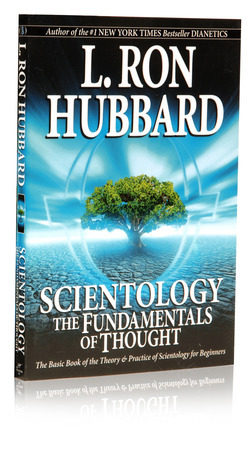
Self Analysis
Book Description
Unlock the secrets of your mind and transform your life in 'Self Analysis' by L. Ron Hubbard. This groundbreaking guide takes you on a riveting journey into self-discovery, revealing powerful techniques to confront and unravel the intricacies of your thoughts and emotions. Experience the thrill of untapped potential as you navigate through your psyche, breaking free from mental barriers and embracing clarity like never before. With each page, the promise of profound change looms larger—dare to dive deep into your own consciousness. Are you ready to confront the truth within and embrace a new reality?
Quick Book Summary
"Self Analysis" by L. Ron Hubbard is a self-help classic that provides readers with practical tools to better understand, analyze, and improve their own minds. Blending principles from psychology, philosophy, and Hubbard’s own system of Dianetics, the book guides readers through a series of exercises designed to unearth and resolve negative emotions and limiting beliefs. The premise is that by examining past experiences, acknowledging their enduring impact, and actively processing unresolved mental content, individuals can unlock greater clarity, happiness, and resilience. The book promises not just insight but concrete self-improvement, encouraging a proactive journey toward mental freedom. With clear instructions and thought-provoking exercises, "Self Analysis" remains a foundational work for those seeking transformation and a deeper relationship with their own psyche.
Summary of Key Ideas
Table of Contents
Understanding the Conscious and Subconscious Mind
The book begins by exploring the difference between the conscious and subconscious (or reactive) parts of the mind. Hubbard posits that much of what drives our behavior lies beneath our immediate awareness—subtle memories and experiences that continue to shape our actions. By familiarizing readers with the architecture of the mind, he lays the groundwork for self-discovery, suggesting that knowing this internal landscape is key to understanding our emotional responses and patterns.
The Role of Past Experiences in Present Behavior
A significant theme is the lingering influence of past experiences. Hubbard explains how negative or traumatic events from the past, even those seemingly forgotten, can remain "charged" in memory, subtly affecting mood, decision-making, and self-esteem. By bringing these experiences into conscious awareness, the grip of the past is loosened, allowing individuals to respond more freely and rationally to present-day challenges.
Techniques for Self-Examination and Reflection
At the heart of the book is a series of structured self-analysis exercises. Hubbard introduces techniques that involve recalling specific incidents, observing patterns in emotional responses, and examining the origins of recurring thoughts. These exercises are designed to empower individuals to systematically explore their mental landscape, recognize unhelpful patterns, and practice techniques for diffusing the emotional weight of problematic memories.
Releasing Negative Emotions and Trauma
Beyond self-understanding, Hubbard’s method emphasizes actively letting go of negative emotions associated with past events. By repeatedly reviewing memories within a safe conceptual framework, individuals can gradually break the cycle of reactivity, gaining emotional distance and control. This process, according to Hubbard, leads to greater clarity, improved well-being, and a reduction in automatic or destructive behaviors.
The Path to Greater Awareness and Emotional Freedom
Ultimately, the book asserts that self-analysis is a gateway to deeper awareness and personal freedom. Through consistent practice, readers can achieve a sense of mental liberation—replacing confusion and pain with insight and empowerment. Hubbard encourages readers to embark on this journey not only to heal old wounds but also to unlock their highest potential, providing both philosophical insight and practical direction for lifelong self-improvement.
Download This Summary
Get a free PDF of this summary instantly — no email required.





